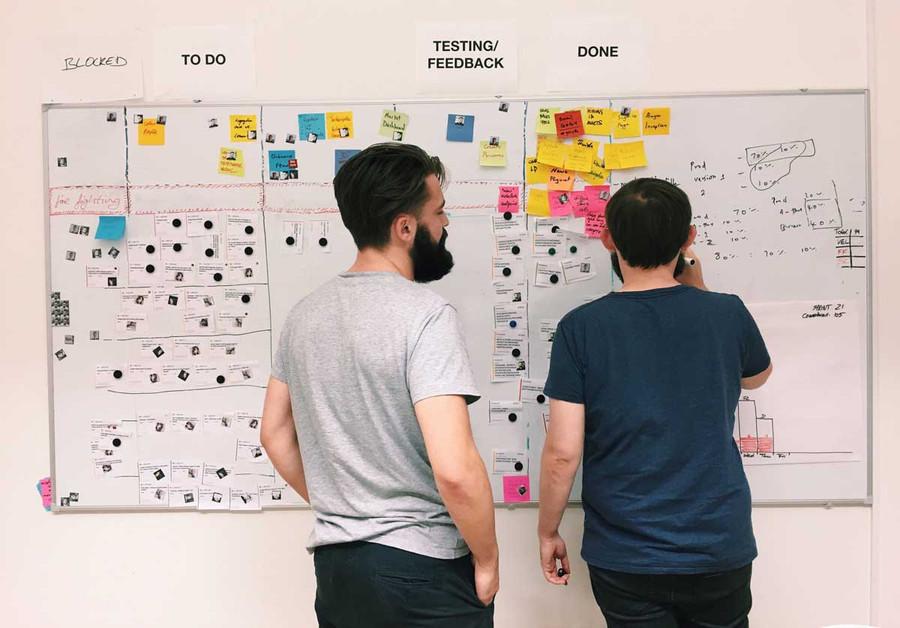Agile Doesn’t Work Without Psychological Safety
Curated from: hbr.org
Ideas, facts & insights covering these topics:
7 ideas
·1.42K reads
9
1
Explore the World's Best Ideas
Join today and uncover 100+ curated journeys from 50+ topics. Unlock access to our mobile app with extensive features.
Successful agile teams
During the last 20 years, the agile movement that originated from the Agile Manifesto has gained momentum, even outside of software development.
Most organizations report that their agile efforts have paid off in terms of speed, quality, value, and long-term growth. However, about half of organizations that undertake agile transformations fail in their attempts.
If your team has yet to reap the rewards of agile, you need to understand what’s preventing you from delivering fast, frictionless and scalable solutions.
25
308 reads
Processes and tools are scaffolding
While agile processes and tools provide support, the primary mechanism is how team members interact.
Can team members interact with conflicting ideas, talk and listen, give and take, question and answer, analyse and solve? Or do they censor one another and end up withdrawing themselves?
If you drop agile tools and processes into a legacy culture where individuals are criticised, embarrassed, discouraged, or intimidated, they stop being agile.
32
235 reads
Frame agile as a cultural implementation
When organisations implement agile, they often revert to technical processes and tools because cultural considerations are difficult to put into practice. It's easier only to pay lip service to the human side and then move to processes with measurable and observable indicators that give the illusion of agile.
Start by framing agile as a cultural rather than a technical or mechanical implementation. Be careful not to approach culture as the completion of tasks. Culture can't be completed.
28
198 reads
Develop, document, and display vulnerable behavior/response pairings.
Meet with your team to identify vulnerable behaviours they think are vital to success. For example, asking questions, giving feedback or expressing different viewpoints. Then, identify positive response patterns for each behaviour, such as thanking someone for pointing out vulnerable behaviour.
Document the behaviour and response pairing and display them in your meeting room. Create a printed job aid of the list that team members can carry with them.
27
172 reads
Focus on one behavior and practice cultural accountability
When you've jointly created a list of vulnerable behaviour/response pairings, pick one to practice.
If a gap appears between the vulnerable behaviour, the response it should receive and the team leader's own behaviour, the dissonance will breed cynicism and lessen credibility.
If a leader tries to model the behaviours and publicly acknowledges mistakes, the team will make progress.
27
162 reads
Formally evaluate your dialogic process
Set time aside in a meeting to review what went well and what could be improved.
- Discuss the quality of the team's interactions.
- Identify potential threats to openness.
- Ask if they felt included in the process.
- What was the most vulnerable behaviour they engaged in?
- How did the team react to it?
- Did you hold back on anything because you didn't feel safe?
27
168 reads
Conclude your scrum with a “question/reflection"
Scrum meetings are daily coordination meetings where team members review the backlog, identify problems, and prioritize tasks. They are short meetings used for reflection.
For example, if a team faces a complex issue, they pose a question about the problem and ask the team to come prepared to the next scrum meeting to discuss it. This allows the team to clarify their thoughts and encourages divergent thinking.
25
182 reads
IDEAS CURATED BY
Mohamed Byrne's ideas are part of this journey:
Learn more about leadershipandmanagement with this collection
How to handle and learn from mistakes
The benefits of psychological safety in a workplace
The importance of empathy and active listening
Related collections
Similar ideas
6 ideas
Get started with agile project management
atlassian.com
7 ideas
Why And How Successful Teams Celebrate Wins And Failures
blog.trello.com
Read & Learn
20x Faster
without
deepstash
with
deepstash
with
deepstash
Personalized microlearning
—
100+ Learning Journeys
—
Access to 200,000+ ideas
—
Access to the mobile app
—
Unlimited idea saving
—
—
Unlimited history
—
—
Unlimited listening to ideas
—
—
Downloading & offline access
—
—
Supercharge your mind with one idea per day
Enter your email and spend 1 minute every day to learn something new.
I agree to receive email updates




